Abstract:
The hybrid flow shop scheduling (HFS) model has significant practical applicability in fields, such as manufacturing, transportation, service, and communication. However,...Show MoreMetadata
Abstract:
The hybrid flow shop scheduling (HFS) model has significant practical applicability in fields, such as manufacturing, transportation, service, and communication. However, learning effects, refer to the phenomenon of processors spending less processing time with more familiar operations, which are common constraints in actual production while often ignored in HFS research despite their significant impact on processing efficiency. In this article, an HFS problem with learning effects and release dates is investigated from a practical application perspective. For large-scale instances, a dispatching rule-based heuristic is developed with theoretical performance guarantees by demonstrating the asymptotic optimality and the tight worst-case bound. For small-scale instances, a branch-and-boun3d algorithm is designed to obtain an exact solution. An elaborate branching scheme, an idle-time-based pruning rule, and a task-splitting-based lower bound effectively reduce the search space. For medium-scale instances, a hybrid shuffled frog-leaping algorithm combined with macro evolution and local intensification is presented to search for high-quality solutions. Extensive experiments demonstrate the superiority of the developed algorithms against the state-of-the-art algorithms.
Published in: IEEE Transactions on Systems, Man, and Cybernetics: Systems ( Volume: 54, Issue: 1, January 2024)
Funding Agency:

Software College, Northeastern University, Shenyang, China
Laboratory IBISC, Univ-Évry, Université Paris-Saclay, Paris, France
Xinyue Wang (Graduate Student Member, IEEE) is currently pursuing the first Ph.D. degree in software engineering with the Software College, Northeastern University, Shenyang, China, and the second Ph.D. degree in mathematical computer science with the Laboratory IBISC, Université Paris-Saclay, Paris, France.
Her research interests include scheduling algorithm design, approximation analysis, and reinforcement learning. Her ...Show More
Xinyue Wang (Graduate Student Member, IEEE) is currently pursuing the first Ph.D. degree in software engineering with the Software College, Northeastern University, Shenyang, China, and the second Ph.D. degree in mathematical computer science with the Laboratory IBISC, Université Paris-Saclay, Paris, France.
Her research interests include scheduling algorithm design, approximation analysis, and reinforcement learning. Her ...View more
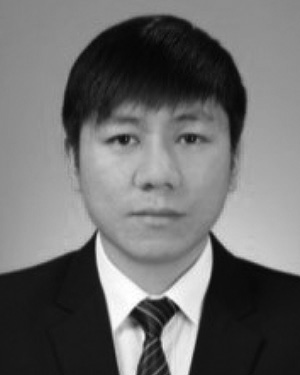
Software College, Northeastern University, Shenyang, China
Tao Ren received the B.S. degree in automatic control and the M.S. and Ph.D. degrees in control theory and control engineering from Northeastern University (NEU), Shenyang, China, in 2003, 2005, and 2007, respectively.
He is currently a Professor with NEU. He has published more than 50 academic papers in authoritative journals. His academic papers have been cited by others more than 100 times. His current research interest...Show More
Tao Ren received the B.S. degree in automatic control and the M.S. and Ph.D. degrees in control theory and control engineering from Northeastern University (NEU), Shenyang, China, in 2003, 2005, and 2007, respectively.
He is currently a Professor with NEU. He has published more than 50 academic papers in authoritative journals. His academic papers have been cited by others more than 100 times. His current research interest...View more
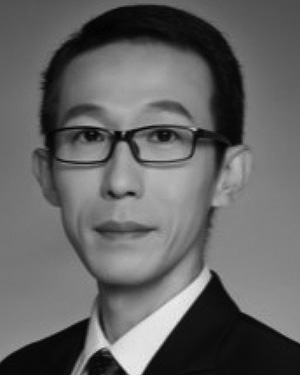
School of Maritime Economics and Management, Dalian Maritime University, Dalian, China
Danyu Bai received the Ph.D. degree in system engineering from Northeastern University, Shenyang, China, in 2010.
He is currently a Professor with the School of Maritime Economics and Management, Dalian Maritime University, Dalian, China, where he is also the Vice Director of the Collaborative Innovation Center for Transport Studies. He was selected for the Bayu Scholar in Chongqing City of China in 2020, and the Vice Chai...Show More
Danyu Bai received the Ph.D. degree in system engineering from Northeastern University, Shenyang, China, in 2010.
He is currently a Professor with the School of Maritime Economics and Management, Dalian Maritime University, Dalian, China, where he is also the Vice Director of the Collaborative Innovation Center for Transport Studies. He was selected for the Bayu Scholar in Chongqing City of China in 2020, and the Vice Chai...View more

Laboratory IBISC, Univ-Évry, Université Paris-Saclay, Paris, France
Feng Chu received the B.S. degree in electrical engineering from the Hefei University of Technology, Hefei, China, in 1986, the M.S. degree in metrology, automatic control, and electrical engineering from the National Polytechnic Institute of Lorraine, Lorraine, France, in 1991, and the Ph.D. degree in automatic control, computer science, and production management from the University of Metz, Metz, France, in 1995.
She is ...Show More
Feng Chu received the B.S. degree in electrical engineering from the Hefei University of Technology, Hefei, China, in 1986, the M.S. degree in metrology, automatic control, and electrical engineering from the National Polytechnic Institute of Lorraine, Lorraine, France, in 1991, and the Ph.D. degree in automatic control, computer science, and production management from the University of Metz, Metz, France, in 1995.
She is ...View more
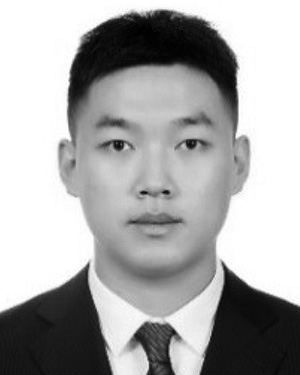
Software College, Northeastern University, Shenyang, China
Xinyu Lu is currently pursuing the B.Eng. degree in software engineering with the Software College, Northeastern University, Shenyang, China.
His research interests include metaheuristic algorithm design and reinforcement learning. His research results have been published in IEEE Transactions on Systems, Man, and Cybernetics: Systems.
Xinyu Lu is currently pursuing the B.Eng. degree in software engineering with the Software College, Northeastern University, Shenyang, China.
His research interests include metaheuristic algorithm design and reinforcement learning. His research results have been published in IEEE Transactions on Systems, Man, and Cybernetics: Systems.View more
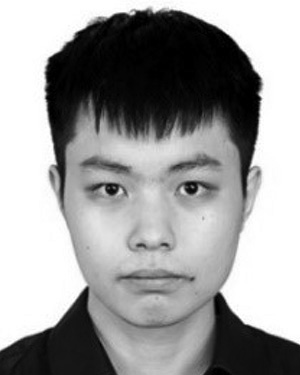
Software College, Northeastern University, Shenyang, China
Zedong Weng is currently pursuing the B.Eng. degree in software engineering with the Software College, Northeastern University, Shenyang, China.
His research interests include exact algorithm design and reinforcement learning. His research results have been published in IEEE Transactions on Systems, Man, and Cybernetics: Systems.
Zedong Weng is currently pursuing the B.Eng. degree in software engineering with the Software College, Northeastern University, Shenyang, China.
His research interests include exact algorithm design and reinforcement learning. His research results have been published in IEEE Transactions on Systems, Man, and Cybernetics: Systems.View more
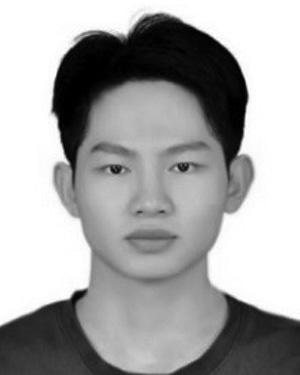
Software College, Northeastern University, Shenyang, China
Jiang Li is currently pursuing the B.Eng. degree in software engineering with the Software College, Northeastern University, Shenyang, China.
His research interests include exact algorithm design and performance analysis. His research results have been published in IEEE Transactions on Systems, Man, and Cybernetics: Systems.
Jiang Li is currently pursuing the B.Eng. degree in software engineering with the Software College, Northeastern University, Shenyang, China.
His research interests include exact algorithm design and performance analysis. His research results have been published in IEEE Transactions on Systems, Man, and Cybernetics: Systems.View more
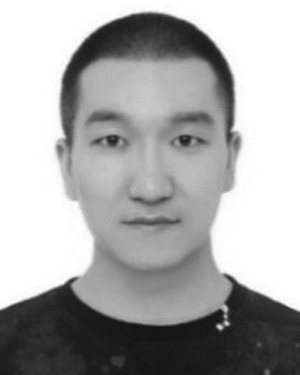
Software College, Northeastern University, Shenyang, China
Jie Liang received the B.S. degree in software engineering from Tianjin Chengjian University, Tianjin, China, in 2016, and the master’s degree in software engineering from Northeastern University, Shenyang, China, in 2019.
His current research interests include intelligent optimization algorithm and production scheduling. His research results have been published in IEEE Transactions on Systems, Man, and Cybernetics: System...Show More
Jie Liang received the B.S. degree in software engineering from Tianjin Chengjian University, Tianjin, China, in 2016, and the master’s degree in software engineering from Northeastern University, Shenyang, China, in 2019.
His current research interests include intelligent optimization algorithm and production scheduling. His research results have been published in IEEE Transactions on Systems, Man, and Cybernetics: System...View more

Software College, Northeastern University, Shenyang, China
Laboratory IBISC, Univ-Évry, Université Paris-Saclay, Paris, France
Xinyue Wang (Graduate Student Member, IEEE) is currently pursuing the first Ph.D. degree in software engineering with the Software College, Northeastern University, Shenyang, China, and the second Ph.D. degree in mathematical computer science with the Laboratory IBISC, Université Paris-Saclay, Paris, France.
Her research interests include scheduling algorithm design, approximation analysis, and reinforcement learning. Her research results have been published in IEEE Transactions on Systems, Man, and Cybernetics: Systems, Swarm and Evolutionary Computation, and International Journal of Production Research.
Xinyue Wang (Graduate Student Member, IEEE) is currently pursuing the first Ph.D. degree in software engineering with the Software College, Northeastern University, Shenyang, China, and the second Ph.D. degree in mathematical computer science with the Laboratory IBISC, Université Paris-Saclay, Paris, France.
Her research interests include scheduling algorithm design, approximation analysis, and reinforcement learning. Her research results have been published in IEEE Transactions on Systems, Man, and Cybernetics: Systems, Swarm and Evolutionary Computation, and International Journal of Production Research.View more

Software College, Northeastern University, Shenyang, China
Tao Ren received the B.S. degree in automatic control and the M.S. and Ph.D. degrees in control theory and control engineering from Northeastern University (NEU), Shenyang, China, in 2003, 2005, and 2007, respectively.
He is currently a Professor with NEU. He has published more than 50 academic papers in authoritative journals. His academic papers have been cited by others more than 100 times. His current research interests include intelligent optimization algorithm, production scheduling, and complex network.
Prof. Ren was awarded the Highly Cited Author Award by the Institute of Physics in 2019.
Tao Ren received the B.S. degree in automatic control and the M.S. and Ph.D. degrees in control theory and control engineering from Northeastern University (NEU), Shenyang, China, in 2003, 2005, and 2007, respectively.
He is currently a Professor with NEU. He has published more than 50 academic papers in authoritative journals. His academic papers have been cited by others more than 100 times. His current research interests include intelligent optimization algorithm, production scheduling, and complex network.
Prof. Ren was awarded the Highly Cited Author Award by the Institute of Physics in 2019.View more

School of Maritime Economics and Management, Dalian Maritime University, Dalian, China
Danyu Bai received the Ph.D. degree in system engineering from Northeastern University, Shenyang, China, in 2010.
He is currently a Professor with the School of Maritime Economics and Management, Dalian Maritime University, Dalian, China, where he is also the Vice Director of the Collaborative Innovation Center for Transport Studies. He was selected for the Bayu Scholar in Chongqing City of China in 2020, and the Vice Chairman in Scheduling Sub-Society of Operations Research Society of China in 2021. He has published approximate 40 papers in international journals, such as Omega, International Journal of Production Research, Swarm Evolutionary Computation, and IEEE Transactions on Systems, Man, and Cybernetics: Systems. His research interests include scheduling theory, maritime logistic optimization, and analysis of approximation algorithm.
Danyu Bai received the Ph.D. degree in system engineering from Northeastern University, Shenyang, China, in 2010.
He is currently a Professor with the School of Maritime Economics and Management, Dalian Maritime University, Dalian, China, where he is also the Vice Director of the Collaborative Innovation Center for Transport Studies. He was selected for the Bayu Scholar in Chongqing City of China in 2020, and the Vice Chairman in Scheduling Sub-Society of Operations Research Society of China in 2021. He has published approximate 40 papers in international journals, such as Omega, International Journal of Production Research, Swarm Evolutionary Computation, and IEEE Transactions on Systems, Man, and Cybernetics: Systems. His research interests include scheduling theory, maritime logistic optimization, and analysis of approximation algorithm.View more

Laboratory IBISC, Univ-Évry, Université Paris-Saclay, Paris, France
Feng Chu received the B.S. degree in electrical engineering from the Hefei University of Technology, Hefei, China, in 1986, the M.S. degree in metrology, automatic control, and electrical engineering from the National Polytechnic Institute of Lorraine, Lorraine, France, in 1991, and the Ph.D. degree in automatic control, computer science, and production management from the University of Metz, Metz, France, in 1995.
She is currently a Full Professor of Operations Research with the Université d’Évry, Paris-Saclay University, Paris, France, and the Leader of the AROBAS Research Team, IBISC Laboratory. She is the author/coauthor of more than 120 papers in international journals. Her research interests include combinatorial optimization, operations research, stochastic programming, and optimization of complex systems.
Prof. Chu is awarded by the French Ministry of Education for her Doctoral Supervision and Research Activities (PEDR) since 2005. She was selected for the Foreign Hundred Talents Program of Anhui Province in 2013, the Thousand Talents Program of Sichuan Province in 2016, and the Min Jian Scholar in Fujian Province of China in 2018.
Feng Chu received the B.S. degree in electrical engineering from the Hefei University of Technology, Hefei, China, in 1986, the M.S. degree in metrology, automatic control, and electrical engineering from the National Polytechnic Institute of Lorraine, Lorraine, France, in 1991, and the Ph.D. degree in automatic control, computer science, and production management from the University of Metz, Metz, France, in 1995.
She is currently a Full Professor of Operations Research with the Université d’Évry, Paris-Saclay University, Paris, France, and the Leader of the AROBAS Research Team, IBISC Laboratory. She is the author/coauthor of more than 120 papers in international journals. Her research interests include combinatorial optimization, operations research, stochastic programming, and optimization of complex systems.
Prof. Chu is awarded by the French Ministry of Education for her Doctoral Supervision and Research Activities (PEDR) since 2005. She was selected for the Foreign Hundred Talents Program of Anhui Province in 2013, the Thousand Talents Program of Sichuan Province in 2016, and the Min Jian Scholar in Fujian Province of China in 2018.View more

Software College, Northeastern University, Shenyang, China
Xinyu Lu is currently pursuing the B.Eng. degree in software engineering with the Software College, Northeastern University, Shenyang, China.
His research interests include metaheuristic algorithm design and reinforcement learning. His research results have been published in IEEE Transactions on Systems, Man, and Cybernetics: Systems.
Xinyu Lu is currently pursuing the B.Eng. degree in software engineering with the Software College, Northeastern University, Shenyang, China.
His research interests include metaheuristic algorithm design and reinforcement learning. His research results have been published in IEEE Transactions on Systems, Man, and Cybernetics: Systems.View more

Software College, Northeastern University, Shenyang, China
Zedong Weng is currently pursuing the B.Eng. degree in software engineering with the Software College, Northeastern University, Shenyang, China.
His research interests include exact algorithm design and reinforcement learning. His research results have been published in IEEE Transactions on Systems, Man, and Cybernetics: Systems.
Zedong Weng is currently pursuing the B.Eng. degree in software engineering with the Software College, Northeastern University, Shenyang, China.
His research interests include exact algorithm design and reinforcement learning. His research results have been published in IEEE Transactions on Systems, Man, and Cybernetics: Systems.View more

Software College, Northeastern University, Shenyang, China
Jiang Li is currently pursuing the B.Eng. degree in software engineering with the Software College, Northeastern University, Shenyang, China.
His research interests include exact algorithm design and performance analysis. His research results have been published in IEEE Transactions on Systems, Man, and Cybernetics: Systems.
Jiang Li is currently pursuing the B.Eng. degree in software engineering with the Software College, Northeastern University, Shenyang, China.
His research interests include exact algorithm design and performance analysis. His research results have been published in IEEE Transactions on Systems, Man, and Cybernetics: Systems.View more

Software College, Northeastern University, Shenyang, China
Jie Liang received the B.S. degree in software engineering from Tianjin Chengjian University, Tianjin, China, in 2016, and the master’s degree in software engineering from Northeastern University, Shenyang, China, in 2019.
His current research interests include intelligent optimization algorithm and production scheduling. His research results have been published in IEEE Transactions on Systems, Man, and Cybernetics: Systems and IEEE Access.
Jie Liang received the B.S. degree in software engineering from Tianjin Chengjian University, Tianjin, China, in 2016, and the master’s degree in software engineering from Northeastern University, Shenyang, China, in 2019.
His current research interests include intelligent optimization algorithm and production scheduling. His research results have been published in IEEE Transactions on Systems, Man, and Cybernetics: Systems and IEEE Access.View more


